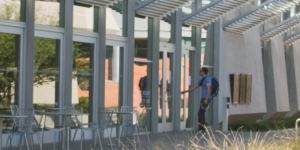Its time for many international students to make a decision. I graduated in 2023 from Leiden Advanced Law and Digital Technologies Program and I am sharing my experience.
This program is
not advanced as it is advertised. It is normal Master LLM program.
not worth the tuition fee 20K Euros
not for experienced lawyers because content is designed for fresh bachelor graduates.
not for those who have already one master’s degree in law and a certification in data protection.
Surely, you will learn something new but that can also be learnt either online or at other in person program at much lower fee.
This program is not Advanced but Intensive. Doubling the amount of readings does not make a program Advanced. Program management believes quantity of reading or tight deadlines or double evaluation defines the quality of program. The content of a program makes it Advanced which is not the case for Leiden tech program.
Program Curriculum
Leiden follows block system.
Program starts in Mid-September and ends in Mid-June.
In total there are 4 block, 10 courses are offered in 10 months.
All courses are mandatory, and no electives are offered.
Each block has 5 weeks and 2 or max 3 courses are per block. Every course has 10 classes of 90 minutes each. That mean there is no time to go into details.
Attendance is mandatory.
Mostly Dutch authors are in reading list and You might miss the international authors in few courses.
Course evaluation
At the end of 5 weeks (10 classes , there are exams. (3 hours exam on University laptop in University exam room. University laptop is a Chromebook in Dutch format and even after many requests, University does not change it.
All courses have evaluation as exam in writing. For some courses you might be surprised to see both exam and paper as evaluation. (2500-5000 words).
Almost all exams check memorising power. So, if you are analytical thinker then you might fail or score low. For some courses you have to write exactly the same language as was spoken in class by Professor or written on class slides. Otherwise, you would not score a mark.
The writing assignments are group assignment, and what if your group members are last minute performers?? Surely, we shall learn how to work in groups but not in a university setting where we shall be nice to our classmates and at same time we want to score good by submitting a good quality assignment.
Professors
A few Professors struggle with English language.
Cybercrime professor is great.
A few professors are OK and a few professors just read the slides.
Overall teaching standard is not up to a level that you will expect in a so-called Advanced program
Class cohort composition
Half of the classmates were from Indonesia and China. Rest 1/4 were from India and1/4 from Turkey. 1 or 2 from South America. 1 or 2 Europeans who are part timers.
Program management
I wish the program management was listening to student feedback rather than simply saying that it is an advanced program.
Conclusion
If you are a fresh graduate and have no legal working experience and If you want a LLM degree from Leiden Law School because of its historical reputation and you want to be closer to Hague and Amsterdam then come to Leiden. I learnt that ranking belongs to Leiden University/Law School not to a specific program.
Connect and talk with people on LinkedIn before making a final decision.
Good luck to everyone.
Leiden Advanced LLM in Law and Digital Technologies is not worth the Fee
Posted Mar 13, 2024 20:11
This program is
not advanced as it is advertised. It is normal Master LLM program.
not worth the tuition fee 20K Euros
not for experienced lawyers because content is designed for fresh bachelor graduates.
not for those who have already one master’s degree in law and a certification in data protection.
Surely, you will learn something new but that can also be learnt either online or at other in person program at much lower fee.
This program is not Advanced but Intensive. Doubling the amount of readings does not make a program Advanced. Program management believes quantity of reading or tight deadlines or double evaluation defines the quality of program. The content of a program makes it Advanced which is not the case for Leiden tech program.
Program Curriculum
Leiden follows block system.
Program starts in Mid-September and ends in Mid-June.
In total there are 4 block, 10 courses are offered in 10 months.
All courses are mandatory, and no electives are offered.
Each block has 5 weeks and 2 or max 3 courses are per block. Every course has 10 classes of 90 minutes each. That mean there is no time to go into details.
Attendance is mandatory.
Mostly Dutch authors are in reading list and You might miss the international authors in few courses.
Course evaluation
At the end of 5 weeks (10 classes , there are exams. (3 hours exam on University laptop in University exam room. University laptop is a Chromebook in Dutch format and even after many requests, University does not change it.
All courses have evaluation as exam in writing. For some courses you might be surprised to see both exam and paper as evaluation. (2500-5000 words).
Almost all exams check memorising power. So, if you are analytical thinker then you might fail or score low. For some courses you have to write exactly the same language as was spoken in class by Professor or written on class slides. Otherwise, you would not score a mark.
The writing assignments are group assignment, and what if your group members are last minute performers?? Surely, we shall learn how to work in groups but not in a university setting where we shall be nice to our classmates and at same time we want to score good by submitting a good quality assignment.
Professors
A few Professors struggle with English language.
Cybercrime professor is great.
A few professors are OK and a few professors just read the slides.
Overall teaching standard is not up to a level that you will expect in a so-called Advanced program
Class cohort composition
Half of the classmates were from Indonesia and China. Rest 1/4 were from India and1/4 from Turkey. 1 or 2 from South America. 1 or 2 Europeans who are part timers.
Program management
I wish the program management was listening to student feedback rather than simply saying that it is an advanced program.
Conclusion
If you are a fresh graduate and have no legal working experience and If you want a LLM degree from Leiden Law School because of its historical reputation and you want to be closer to Hague and Amsterdam then come to Leiden. I learnt that ranking belongs to Leiden University/Law School not to a specific program.
Connect and talk with people on LinkedIn before making a final decision.
Good luck to everyone.
Posted Mar 13, 2024 20:17
Thank you for comprehensive experience. I was struggling between Leiden and Tilburg. Your post made it easier for me. Its Tilburg for me.
Its time for many international students to make a decision. I graduated in 2023 from Leiden Advanced Law and Digital Technologies Program and I am sharing my experience.
This program is
not advanced as it is advertised. It is normal Master LLM program.
not worth the tuition fee 20K Euros
not for experienced lawyers because content is designed for fresh bachelor graduates.
not for those who have already one master’s degree in law and a certification in data protection.
Surely, you will learn something new but that can also be learnt either online or at other in person program at much lower fee.
This program is not Advanced but Intensive. Doubling the amount of readings does not make a program Advanced. Program management believes quantity of reading or tight deadlines or double evaluation defines the quality of program. The content of a program makes it Advanced which is not the case for Leiden tech program.
Program Curriculum
Leiden follows block system.
Program starts in Mid-September and ends in Mid-June.
In total there are 4 block, 10 courses are offered in 10 months.
All courses are mandatory, and no electives are offered.
Each block has 5 weeks and 2 or max 3 courses are per block. Every course has 10 classes of 90 minutes each. That mean there is no time to go into details.
Attendance is mandatory.
Mostly Dutch authors are in reading list and You might miss the international authors in few courses.
Course evaluation
At the end of 5 weeks (10 classes , there are exams. (3 hours exam on University laptop in University exam room. University laptop is a Chromebook in Dutch format and even after many requests, University does not change it.
All courses have evaluation as exam in writing. For some courses you might be surprised to see both exam and paper as evaluation. (2500-5000 words).
Almost all exams check memorising power. So, if you are analytical thinker then you might fail or score low. For some courses you have to write exactly the same language as was spoken in class by Professor or written on class slides. Otherwise, you would not score a mark.
The writing assignments are group assignment, and what if your group members are last minute performers?? Surely, we shall learn how to work in groups but not in a university setting where we shall be nice to our classmates and at same time we want to score good by submitting a good quality assignment.
Professors
A few Professors struggle with English language.
Cybercrime professor is great.
A few professors are OK and a few professors just read the slides.
Overall teaching standard is not up to a level that you will expect in a so-called Advanced program
Class cohort composition
Half of the classmates were from Indonesia and China. Rest 1/4 were from India and1/4 from Turkey. 1 or 2 from South America. 1 or 2 Europeans who are part timers.
Program management
I wish the program management was listening to student feedback rather than simply saying that it is an advanced program.
Conclusion
If you are a fresh graduate and have no legal working experience and If you want a LLM degree from Leiden Law School because of its historical reputation and you want to be closer to Hague and Amsterdam then come to Leiden. I learnt that ranking belongs to Leiden University/Law School not to a specific program.
Connect and talk with people on LinkedIn before making a final decision.
Good luck to everyone.
[quote]Its time for many international students to make a decision. I graduated in 2023 from Leiden Advanced Law and Digital Technologies Program and I am sharing my experience.
This program is
not advanced as it is advertised. It is normal Master LLM program.
not worth the tuition fee 20K Euros
not for experienced lawyers because content is designed for fresh bachelor graduates.
not for those who have already one master’s degree in law and a certification in data protection.
Surely, you will learn something new but that can also be learnt either online or at other in person program at much lower fee.
This program is not Advanced but Intensive. Doubling the amount of readings does not make a program Advanced. Program management believes quantity of reading or tight deadlines or double evaluation defines the quality of program. The content of a program makes it Advanced which is not the case for Leiden tech program.
Program Curriculum
Leiden follows block system.
Program starts in Mid-September and ends in Mid-June.
In total there are 4 block, 10 courses are offered in 10 months.
All courses are mandatory, and no electives are offered.
Each block has 5 weeks and 2 or max 3 courses are per block. Every course has 10 classes of 90 minutes each. That mean there is no time to go into details.
Attendance is mandatory.
Mostly Dutch authors are in reading list and You might miss the international authors in few courses.
Course evaluation
At the end of 5 weeks (10 classes , there are exams. (3 hours exam on University laptop in University exam room. University laptop is a Chromebook in Dutch format and even after many requests, University does not change it.
All courses have evaluation as exam in writing. For some courses you might be surprised to see both exam and paper as evaluation. (2500-5000 words).
Almost all exams check memorising power. So, if you are analytical thinker then you might fail or score low. For some courses you have to write exactly the same language as was spoken in class by Professor or written on class slides. Otherwise, you would not score a mark.
The writing assignments are group assignment, and what if your group members are last minute performers?? Surely, we shall learn how to work in groups but not in a university setting where we shall be nice to our classmates and at same time we want to score good by submitting a good quality assignment.
Professors
A few Professors struggle with English language.
Cybercrime professor is great.
A few professors are OK and a few professors just read the slides.
Overall teaching standard is not up to a level that you will expect in a so-called Advanced program
Class cohort composition
Half of the classmates were from Indonesia and China. Rest 1/4 were from India and1/4 from Turkey. 1 or 2 from South America. 1 or 2 Europeans who are part timers.
Program management
I wish the program management was listening to student feedback rather than simply saying that it is an advanced program.
Conclusion
If you are a fresh graduate and have no legal working experience and If you want a LLM degree from Leiden Law School because of its historical reputation and you want to be closer to Hague and Amsterdam then come to Leiden. I learnt that ranking belongs to Leiden University/Law School not to a specific program.
Connect and talk with people on LinkedIn before making a final decision.
Good luck to everyone. [/quote]
Posted Apr 11, 2024 17:51
What makes this course advanced? The level of discussions, the quality of research papers given as reading material and of course, the exposure to the best academicians in this field. In the 2023 batch, we even got the chance to go visit KU Leuven and see their quantum computer and ask million questions to the researchers there.
- In depth vs surface level - For any master course, specially for areas as wide as tech and law, it is not possible for faculty to deep dive into a topic. It is the responsibility of students to deep dive into subjects they want to, study more and work on it. I always scheduled 1:1 meetings with my professors on topics where I chose to deep dive.
- learning online vs coming to LDT - highlighting the difference between training and education, this course equipped me with very different kinds of skill set - it helped me think critically and make solid arguments. In terms of exposure, the workshops, the field visits, the guest lectures - they all add up of course. You can always do additional online courses after this LLM to complement your knowledge - as per your interest area.
- International exposure - Our entire batch was super international and about teachers, we had guest faculty joining from different countries within EU, USA and UK - from academic and industry.
- Teaching style and exam methods - For subjects like ethics, we had open book exams but again when it comes to GDPR, it is valuable to know relevant sections by heart.
My conclusion - Definitely consider LDT :)
[Edited by Yashu Bansal on Apr 11, 2024]
<div>- In depth vs surface level - For any master course, specially for areas as wide as tech and law, it is not possible for faculty to deep dive into a topic. It is the responsibility of students to deep dive into subjects they want to, study more and work on it. I always scheduled 1:1 meetings with my professors on topics where I chose to deep dive. <br>
</div><div>- learning online vs coming to LDT - highlighting the difference between training and education, this course equipped me with very different kinds of skill set - it helped me think critically and make solid arguments. In terms of exposure, the workshops, the field visits, the guest lectures - they all add up of course. You can always do additional online courses after this LLM to complement your knowledge - as per your interest area. <br>
</div><div>- International exposure - Our entire batch was super international and about teachers, we had guest faculty joining from different countries within EU, USA and UK - from academic and industry. <br>
</div><div>- Teaching style and exam methods - For subjects like ethics, we had open book exams but again when it comes to GDPR, it is valuable to know relevant sections by heart.<br>
</div><div>My conclusion - Definitely consider LDT :) </div>
Posted Apr 23, 2024 14:12
The aim of my post is to present the clear difference between LLM and so called Advanced.
Q is not only whether Leiden Law and Digital tech (LDT) program is better than others, but also why Leiden University market a normal LLM course as advanced? This is a manipulative statement for international students, especially for experienced Law working professionals.
Prospective students would be able to see the difference if they will
- Check the academic professors in VUB Brussels, Tilburg, KU Leuven, and Edinburgh.
- Check the academic publication of these professors and you will see the clear picture.
- Compare the course curriculum of these Universities and compare with LDT. You will find that research methodology is completely missing at LDT. The focus is on theory of 5 weeks and exam in 6th week.
You must be kidding by highlighting field trips and 1-1 meetings with professors. These two are normal components of any bachelors/master program. If that was advanced part for you then you might be blown off by seeing the number of trips organised by Leuven, Brussels, Edinburgh and Tilburg. All of the these Universities have office hours scheduler that allows every student to plan a meeting with any faculty not only with law faculty. In addition, those programs have intra-program interactions, seminars, and interdisciplinary discussions which I completely missed at Leiden program.
Nevertheless, it is good to see that , Yashu, you are satisfied with the program. It was fun to have similar debates with you during the program. All the best with your future endeavours.
@ Prospective Experienced Law Professionals students, as mentioned earlier, connect with people on Linkedin, check their profile what were they doing before Leiden and what are they doing after LDT. Accordingly ask them what was the worth of Leiden Law and Digital Tech program in their academic and professional career !!
<div>Q is not only whether Leiden Law and Digital tech (LDT) program is better than others, but also why Leiden University market a normal LLM course as advanced? This is a manipulative statement for international students, especially for experienced Law working professionals.
Prospective students would be able to see the difference if they will
- Check the academic professors in VUB Brussels, Tilburg, KU Leuven, and Edinburgh.
- Check the academic publication of these professors and you will see the clear picture.
- Compare the course curriculum of these Universities and compare with LDT. You will find that research methodology is completely missing at LDT. The focus is on theory of 5 weeks and exam in 6th week.
You must be kidding by highlighting field trips and 1-1 meetings with professors. These two are normal components of any bachelors/master program. If that was advanced part for you then you might be blown off by seeing the number of trips organised by Leuven, Brussels, Edinburgh and Tilburg. All of the these Universities have office hours scheduler that allows every student to plan a meeting with any faculty not only with law faculty. In addition, those programs have intra-program interactions, seminars, and interdisciplinary discussions which I completely missed at Leiden program.
Nevertheless, it is good to see that , Yashu, you are satisfied with the program. It was fun to have similar debates with you during the program. All the best with your future endeavours.
@ Prospective Experienced Law Professionals students, as mentioned earlier, connect with people on Linkedin, check their profile what were they doing before Leiden and what are they doing after LDT. Accordingly ask them what was the worth of Leiden Law and Digital Tech program in their academic and professional career !!</div>
Posted Sep 12, 2024 20:56
IMHO the best LLM in Law and Tech (IT, IP, Competition law) in Europe nowadays is Tilburg. It has managed to bring many of the leading experts in their respective fields: Competition law and tech (Giorgio Monti and Inge Graef), data protection (De Hert, Kosta, Van der Sloot, Dalla Corte) and IP (Mendes). Besides, Tilt/Tilec might 'possibly' be the leading European research center in Data Protection (with VUB) and competition law. If it is for quality of their faculty and research, you cannot be wrong with Tilburg.
Related Law Schools
Other Related Content
LL.M.s in the Netherlands: Getting International Perspective in the Home of the ICC and the Peace Palace
Article Feb 20, 2017
With the softening of a law making it easier for international students to get work experience while they study, the Netherlands has become an even more attractive country to study law.
Top 9 Law Schools in the Netherlands
Top List
There are many, many highly-ranked and prestigious law schools in the Netherlands. We’ve listed the best of them.
Hot Discussions
-
NUS LLM 2024-25 Cohort
Oct 25, 2024 5,856 34 -
MIDS - 2024-25
Nov 15 12:52 AM 1,837 16 -
Harvard LLM 2025-2026
19 hours ago 1,668 7 -
LL.M. Scholarship Rates?
Nov 09, 2024 2,502 5 -
Scholarship Negotiation Strategy (BCL v. NYU LLM Dean's Graduate Scholarship)
Nov 09, 2024 1,038 4 -
EU citizen barred in the US -- will an LLM from an EU school help me practice law somewhere in the EU?
Nov 15 12:58 AM 137 4 -
LLM in ADR
Oct 23, 2024 390 4 -
LLM in Germany 2024
Nov 09, 2024 822 4





